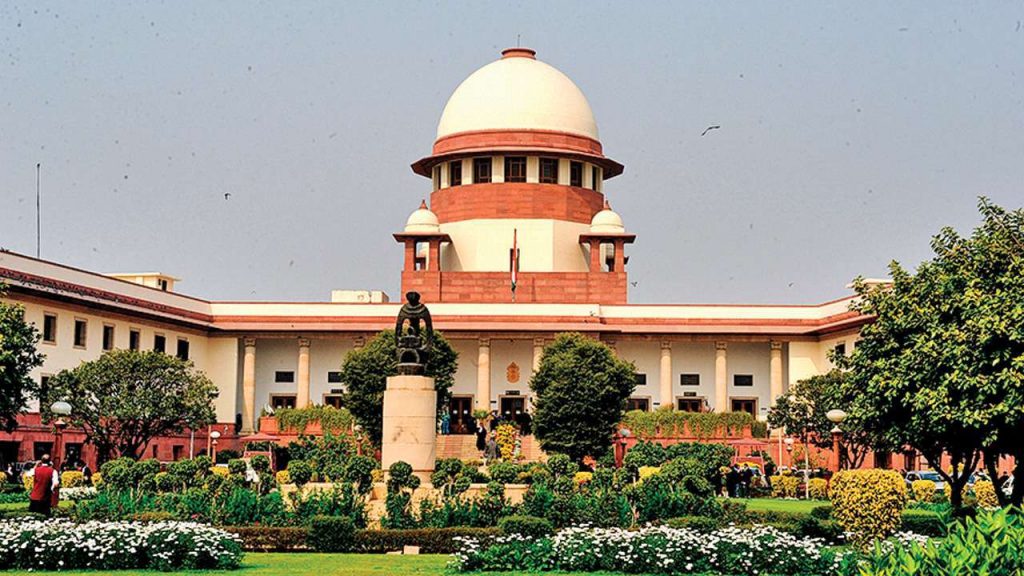New Delhi: The Supreme Court is scheduled to hear Monday a batch of pleas seeking the identification of minorities at the state level.
A bench of justices Sanjay Kishan Kaul and Ahsanuddin Amanullah will take up for hearing the petitions raising various issues related to the identification of minorities, including challenging the constitutional validity of the National Minority Commission Act, 1992 and the National Commission for Minority Educational Institutes Act, 2004.
The pleas include the one filed by advocate Ashwini Upadhyay who has sought directions for framing guidelines for the identification of minorities at the state level, contending that Hindus are in minority in 10 states.
January 17, the top court had expressed displeasure over six states and Union Territories (UTs), including Jammu and Kashmir, not submitting their comments to the Centre on the issue of identification of minorities at the state level.
“We fail to appreciate why these states should not respond. We give the last opportunity to the central government to obtain their responses failing which we will presume that they have nothing to say,” the top court had said.
Attorney General R Venkataramani, appearing for the Centre, had referred to the status report filed by the Ministry of Minority Affairs which said that 24 states and six UTs have so far furnished their comments on the issue.
The status report, filed in the apex court January 11, 2023, said that comments from six states and UTs – Arunachal Pradesh, Jammu and Kashmir, Jharkhand, Lakshadweep, Rajasthan and Telangana – are still awaited.
November 22 last year, the Centre told the top court that it has held consultative meetings with all state governments, UTs and other stakeholders on the issue of identification of minorities at the state level and 14 states have furnished their views so far.
In its status report, the ministry has said that the “last reminder” was sent December 21 to these six states and UTs which have so far not given their comments.
It said in one of the petitions, “the petitioner has prayed to put restrain on the Government of India from placing reliance/acting upon and implementing the Sachar Committee report, submitted November 17, 2006, for running/initiating any scheme/s in favour of Muslim community or for any other purpose”.
The status report said that a petition with the same subject matter is pending adjudication before the apex court.
The ministry has said that apart from state governments and UTs, it held consultative meetings with other stakeholders including the Ministry of Home Affairs, the Ministry of Law and Justice, the Ministry of Education, the National Commission for Minorities (NCM) and the National Commission for Minority Educational Institutions (NCMEI).
“All the ministries/departments have sent their views/comments,” said the status report which also annexed the copy of replies received from these ministries or departments.
The ministry said 24 state governments including Andhra Pradesh, Assam, Bihar, Chhattisgarh, Karnataka, Kerala, Madhya Pradesh, Maharashtra, Punjab, Meghalaya, Mizoram, Manipur, Odisha, Sikkim, Uttarakhand, Nagaland and Himachal Pradesh have furnished their views.
Others are Haryana, Gujarat, Goa, West Bengal, Tripura, Uttar Pradesh, Tamil Nadu, and six Union Territories namely Ladakh, Dadra & Nagar Haveli and Daman & Diu, Chandigarh, NCT of Delhi, Andaman & Nicobar islands and Puducherry.
During the earlier hearing, Upadhyay had told the bench that he has challenged the validity of section 2(f) of the National Commission for Minority Education Institution Act, 2004.
Terming section 2(f) of the Act, which empowers the Centre to identify and notify minority communities in India, as “manifestly arbitrary, irrational, and offending”, his plea has alleged that it gives unbridled power to the Centre.
Upadhyay had earlier referred to a 2007 judgement of the Allahabad High Court on a plea seeking the quashing of the May 2004 order passed by Uttar Pradesh recognising 67 madrassas for grant-in-aid.
He had said the high court verdict of 2007 has not been challenged.
“Can minority status be decided district-wise? How can that be done,” the bench had earlier observed during the hearing.
May 10 last year, the apex court expressed displeasure over the Centre’s shifting stand on the issue of identification of minorities, including Hindus, at the state level and directed it to hold consultations with the states within three months.
In supersession of its earlier stand, the Centre had told the apex court that the power to notify minorities is vested with the Union government and any decision about the issue will be taken after discussion with states and other stakeholders.
PTI
